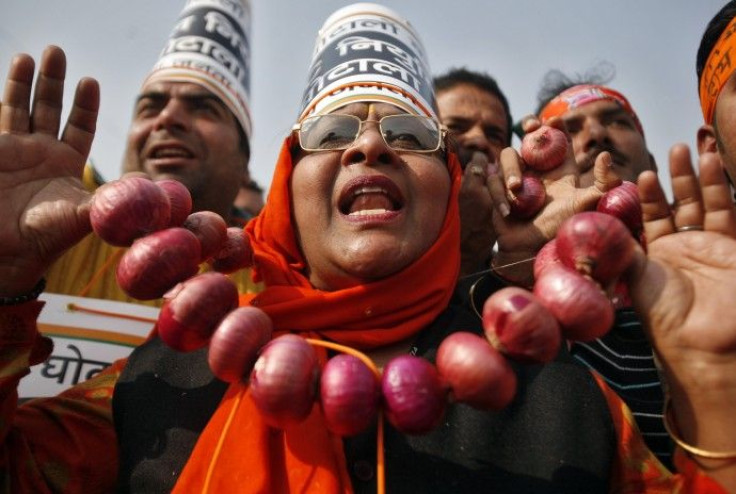Who cares about the price of onions in India?

Onions may not be taken as a very serious subject, but the rapid rise in the price of this odorous vegetable in India reflects growing inflation fears in the emerging markets.
In India, onions form a very important part of the daily diet for the nation’s hundreds of millions of poor, making it a national issue of some importance. Prices have more than doubled in just the past week primarily due to crop failures and hoarding by middleman.
The government of Prime Minister Manmohan Singh – already pressured by a corruption scandal -- has taken the price jump seriously enough to ban its export indefinitely. The country has also cut the import duty on onions to zero and ordered state-owned companies to import the vegetable. India has even sought out its hostile neighbor Pakistan for onion imports.
But prices of many other vegetables are also rising – indeed, as index that tracks wholesale prices of agriculture surged 12.1 percent over the past year, according to the Ministry of Trade. Finance Minister Pranab Mukherjee has explicitly attributed the rising inflation to high onion prices.
“I am afraid there has been some upward movement [in the prices] of food items,” he said.
“Of course, the weekly fluctuation takes place and one of the reasons may be the high prices of onions, to tackle which we have taken steps.”
India’s giant neighbor China is also contending with rising food inflation.
During India’s often-chaotic history, inflation – particularly food inflation – has led to strikes and violent demonstrations. In fact, The Bharatiya Janata Party was defeated in local elections in 1998 after a sharp rise in onion prices.
“Onions are politically sensitive as parties have lost elections over onion prices in the past,” said N. Bhaskara Rao, chairman of the Centre for Media Studies in New Delhi.
“This price rise is a classic case of management failure of the agricultural produce so important for Indians.”
Cabinet Secretary K.M. Chandrasekhar said the government will take measures to tame food inflation (including, the prices of the much coveted onion).
The Reserve Bank of India is concerned about inflation, but it has forecast that wholesale-price inflation rate could slow down to 5.5 percent by March2011 from 7.48 percent in November 2010.
Economists believe that central bank governor Duvvuri Subbarao may resume monetary tightening in January after keeping rates unchanged at the recent December meeting.
In 2010, the central bank boosted interest rates six times.
© Copyright IBTimes 2024. All rights reserved.











